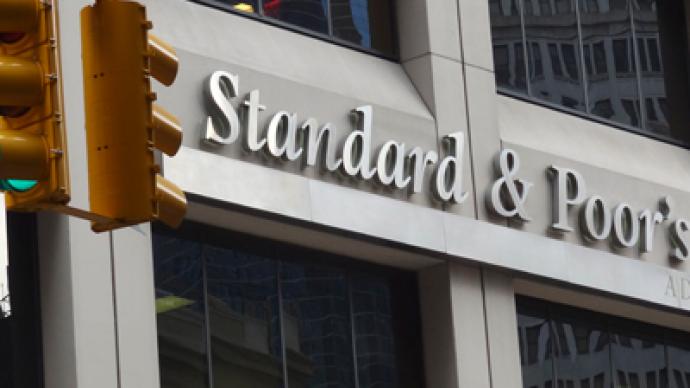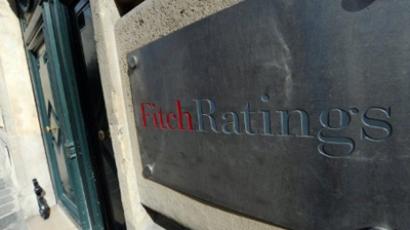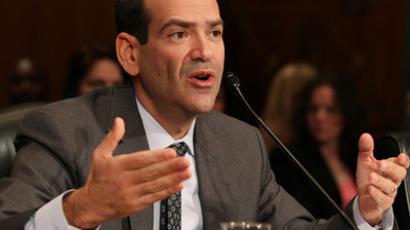US sues S&P after triple-A downgrade

The US government is blaming the financial crisis that catapulted the US into recession in 2007 on debt raters Standard & Poor’s. But by singling out S&P, the DoJ raises suspicions that it might be retaliating for a downgraded US credit rating.
In a Monday evening filing in federal court, the US Justice Department introduced civil charges against S&P, one of the top three rating agencies in the country, claiming that the group “knowingly and with the intent to defraud, devised, participated in and executed a scheme to defraud investors” between September 2004 and October 2007. According to the government, S&P’s ill-guided ratings decisions artificially inflated the value of certain mortgage bonds, setting up the American economy for the catastrophic collapse that signaled the single-greatest economist disaster in the country’s history since the Great Depression. S&P lied, the government claims, when they insisted their ratings “were objective, independent, uninfluenced by any conflicts of interest.”In a statement of response issued after the announcement, S&P writes, “A DOJ lawsuit would be entirely without factual or legal merit.” “It would disregard the central facts that S&P reviewed the same subprime mortgage data as the rest of the market – including U.S. government officials who in 2007 publicly stated that problems in the subprime market appeared to be contained – and that every CDO that DOJ has cited to us also independently received the same rating from another rating agency,” the company fired back.Should the Justice Department see a success in federal court, S&P could be stuck spending millions, perhaps billions, to pay back the government over allegations of fraud. For now, however, neither of other big raters — namely Moody’s and Fitch — have been linked to the scandal.“[W]e have no reason to believe Fitch is a target of any such action,” Fitch spokesperson Daniel J. Noonan tells Forbes this week. The outlet says representatives for Moody’s declined to comment, but a 53 cent surge for the company during Tuesday’s opening bell suggests that, at least for many, Moody’s is in the clear.Anthony Sabino, a professor at St. John’s University‘s Peter J. Tobin College of Business, tells Forbes that “This is part of the federal government’s continued effort to ‘round up’ anybody and everybody allegedly culpable in the financial crisis.” With S&P being the only entity singled out for now, though, it has others singing a different tune. Could the charges against only S&P suggest something motivated by more than just holding credit raters responsible?If the Justice Department has a bone to pick with any credit rater, it’s S&P. While the bonds they sold to banks ended up to 2007 indeed ended up being at least partially responsible for the recession that followed, that wasn’t the last time S&P made serious headlines. In August 2011, the agency dropped their credit rating of the United States, downgrading it from triple-A for the first time in 70 years."The downgrade reflects our opinion that the … plan that Congress and the Administration recently agreed to falls short of what, in our view, would be necessary to stabilize the government's medium-term debt dynamics,” S&P reasoned at the time, citing the government’s inability to put partisan bickering aside during that year’s debt ceiling debate.“Given that S&P issued a historic downgrade of U.S. creditworthiness in August 2011 and has threatened to take that rating down a further notch, the pending suit is raising questions of whether it actually amounts to retaliation,” Kevin G. Hall and Greg Gordon write now for McClatchy Newspapers.Additionally, McClatchy reports that Moody’s was on the Justice Department’s radar for around three years, but an investigation wrapped up in the summer of 2011 with the conclusion that the company would be spared charges. That decision, of course, coincided with S&P’s downgrading of the US credit rating. One source, speaking on condition of anonymity, tells McClatchy that Moody’s was in the clear after S&P’s 2011 downgrade.“Why S&P? Because they downgraded the United States,” former Moody’s employee Sylvain Raynes adds to the paper.














